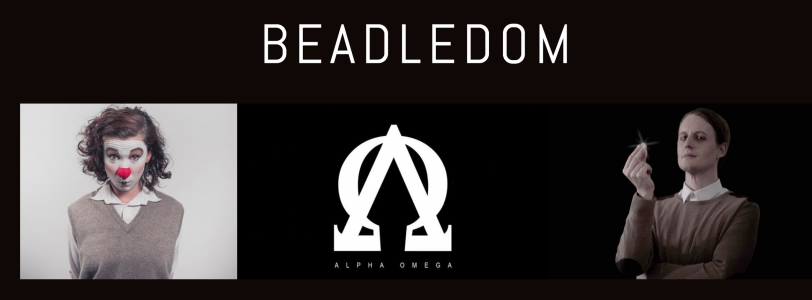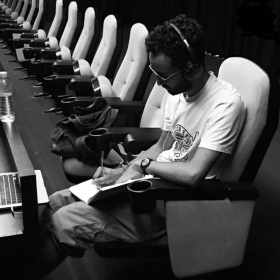The show introduces us to Deborah, played by Dott Cotton, who works at the Beadledom office. Her job is to remove life from the universe, however her physical actions go unexplained, leaving their link to their purpose too tenuous. The monotony of work life is evident but what the work is seems to be immaterial, which it isn't. Miming the show rather than speaking it gave a great extra dimension to the performance.
This is also the case for the turning point. Deborah emerges as a life fanatic, fascinated by the possibility of creating one rather than exorcising it from the cosmos. Again, the rebellion is evident, but what she is doing to rebel and against what she is rebelling, other than the monotony, isn't.
For the first half of the show, a slightly alternative reading could be made. Instead, Deborah is sick of working without an aim and begins to commit slightly rebellious acts such as stealing a colleague's lamp and rummaging through their desk as well as shirking her work and doing it badly. This because she realises her life is little more than aimless bureaucracy. This reading would prove stagnant about two-thirds through the play, leaving the show to peter into obscurity.
The production design was pleasing with the office setting being symmetrical, clinical and very drab but with a backdrop with bespoke shapes and texture to suggest the otherworldliness of the setting. Deborah's costume and make-up extended this well.
However, a back projected screen was harmless until it displayed a badly crafted animation. It was important to evoke themes of humanness and sentimentality despite how late in the show it appeared. Some better designed, effusive and personable animated stories would have served the production and its intentions well.
The two-parter will pick up with Alpha later in the week. For Omega, a lack of personality created a boring show. Where the music was clearly designed to thrill, the alignment with what we saw was non-existent.
- Image courtesy of Familia de la Noche









0 Comments